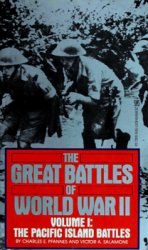The New Frontier was the administrative program of President John F. Kennedy that called for new initiatives in both domestic policy and foreign affairs.
Following Franklin D. Roosevelt’s New Deal and Harry S. Truman’s Fair Deal, Kennedy called his program the New Frontier. In his inaugural address in 1961, he challenged Americans to “defend freedom in its hour of maximum danger,” referring to the COLD war struggle with the Soviet Union. He also declared that this New Frontier would demand “invention, innovation, imagination, and decision to improve both the United States and the rest of the world.”
The New Frontier consisted of two separate agendas, domestic policy and foreign affairs. The domestic agenda in time included a comprehensive civil rights act to guarantee equal access to public accommodations without discrimination, a reduction of taxes to guarantee full employment, and an increase in the minimum wage. It also sought aid for primary, secondary, and even college education. Finally, it proposed dealing with chronic pockets of poverty.
Kennedy’s domestic program received little support in Congress. The civil rights bill was bottled up in congressional committees, and the tax cut went nowhere. Aid to EDUCATION failed over the issue of whether support should go to parochial schools.
Congress did pass a measure increasing the minimum wage to $1.25 an hour, and a bill providing federal aid to economically depressed areas to develop new industries. The government also pledged to train and retrain people to equip them with the necessary skills for jobs that were available.
At the same time, the New Frontier included maintaining a firm stance in the cold war. In his inaugural address, Kennedy had asked Americans to “bear any burden, meet any hardship, support any friend, oppose any foe to assure the survival and the success of liberty.” He demanded that the United States stop the encroachments of the Soviet Union. To that end, he authorized the ill-fated invasion of Cuba at the Bay of Pigs, stood up to the Russians in the Cuban missile crisis, and demanded increased military spending as the United States clashed with the Soviet Union over Berlin.
At the same time, Kennedy jump-started the space program and authorized an effort to place a man on the moon before the end of the decade. He created the Peace Corps, an agency that trained American volunteers to perform social and humanitarian services overseas. Volunteers were sent mainly to Asia, Africa, and Latin America, where they lived and worked with local inhabitants on projects in agriculture, education, and public health. The overall goal was to promote world peace and friendship with the world’s developing nations.
Kennedy’s New Frontier often seemed more rhetoric than substance. On the domestic front, in particular, slim congressional majorities made it difficult to get much significant legislation passed. Still, New Frontier innovations provided the framework for Lyndon B. Johnson’s Great Society.
Further reading: Herbert S. Parmet, JFK The Presidency of John F. Kennedy (New York: The Dial Press, 1983); Richard Reeves, President Kennedy: Profile of Power (New York: Simon & Schuster, 1993).
—Katherine R. Yarosh




 World History
World History









